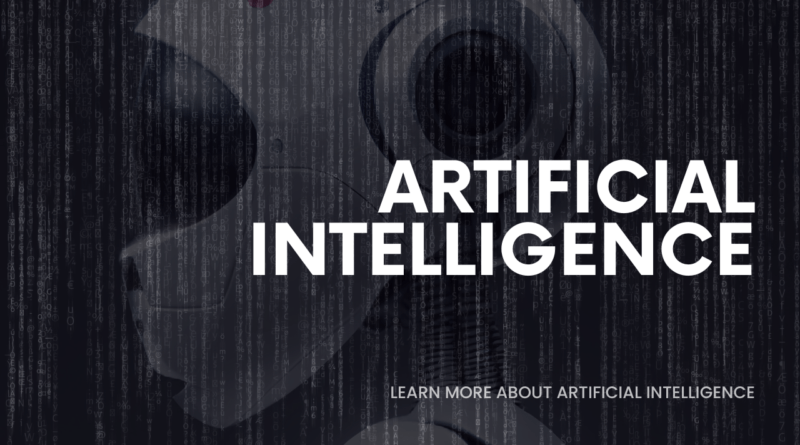Role Of AI In Business – Reshaping Business and Beyond
Role Of AI in Business: The Infiltration of Artificial Intelligence: Reshaping Business and Beyond
Artificial intelligence (AI) is no longer a figment of science fiction. In 2024, it’s rapidly transforming the way businesses operate, generating a wave of innovation that disrupts industries and redefines the landscape. From automating mundane tasks to gleaning valuable insights from vast data troves, AI empowers businesses to gain a significant competitive edge.
This comprehensive exploration delves into the multifaceted role of AI in business, venturing beyond departments to examine its applications, benefits, potential future implications, and broader societal impact.
AI: The Powerhouse of Automation
One of the most impactful applications of AI in business is automation. Repetitive, rule-based tasks that were once the domain of human employees can now be efficiently performed by AI-powered machines and software. This frees up valuable human resources for more strategic endeavors, boosting overall productivity.
- Revolutionizing Customer Service: Imagine a customer service department where basic inquiries are handled efficiently by AI-powered chatbots. These chatbots can answer frequently asked questions, troubleshoot common problems, and even schedule appointments. This not only reduces the burden on human customer service representatives but also provides 24/7 customer support, significantly enhancing the customer experience.
- Optimizing Manufacturing: In manufacturing facilities, AI-powered robots can automate assembly lines, performing tasks with greater precision and speed than human workers. This not only reduces production costs but also improves product quality and consistency. The efficiency gains translate to a more competitive edge in the marketplace.
- Beyond Efficiency: Automation extends beyond basic tasks. AI can automate data entry, generate reports, and even write basic marketing copy. This frees up human employees to focus on higher-level cognitive tasks that require creativity, critical thinking, and emotional intelligence.
AI-Driven Data Analytics: Unveiling Hidden Gems
In today’s data-driven world, businesses generate massive amounts of information. However, extracting meaningful insights from this data deluge can be a daunting task. Here’s where AI comes to the rescue.
- AI as the Ultimate Data Analyst: AI-powered analytics tools can sift through vast data sets, identify patterns, and uncover hidden trends that human analysts might miss. This empowers businesses to make data-driven decisions on everything from marketing campaigns to product development.
- Personalized Marketing: For instance, AI can analyze customer purchase history to identify buying patterns and personalize product recommendations. This targeted approach not only increases customer satisfaction but also boosts sales and revenue. Imagine an e-commerce platform that uses AI to recommend products based on a customer’s past purchases and browsing behavior. This not only makes the shopping experience more convenient but also increases the likelihood of customers making a purchase.
- Predictive Power: Furthermore, AI can analyze financial data to predict market trends and identify potential risks. This foresight allows businesses to make informed investment decisions and stay ahead of the curve. A company analyzing sales data with AI can predict future demand for products, optimize inventory levels, and avoid stockouts or overstocking, leading to smoother operations and better financial outcomes.
- Beyond Business Analytics: The power of AI-driven data analytics extends beyond business. AI is being used in healthcare to analyze medical images for earlier and more accurate disease diagnosis, and in scientific research to analyze complex data sets and identify patterns that could lead to groundbreaking discoveries.
AI for Enhanced Customer Experience
Customer experience (CX) is a crucial differentiator in today’s competitive marketplace. AI is playing a pivotal role in elevating CX by personalizing interactions and anticipating customer needs.
- The Rise of Chatbots: Chatbots powered by AI can provide real-time customer support, answer questions, and even troubleshoot problems. This not only improves customer satisfaction but also reduces the need for human intervention, saving businesses time and resources.
- Personalization at its Finest: AI can also be used to personalize marketing campaigns. By analyzing customer data, businesses can tailor their messaging to individual preferences, leading to higher engagement and conversion rates.
- The Power of Recommendation: Recommendation engines powered by AI can suggest products or services that a customer is likely to be interested in based on their past purchases and browsing behavior. This not only personalizes the shopping experience but also increases the likelihood of a customer making a purchase.
- Beyond Personalization: AI can also be used to analyze customer sentiment from social media posts and online reviews. This allows businesses to identify areas for improvement and proactively address customer concerns, fostering stronger customer relationships.
The Future of AI in Business: A Glimpse Ahead
As AI technology continues to evolve, its impact on businesses will undoubtedly become even more profound. Here are some potential
Here are some potential future applications of AI in business:
- AI-powered product development: AI can assist in designing and developing products that are tailored to specific customer needs and preferences. Imagine AI algorithms analyzing customer reviews and social media data to identify product features that are most desired. This data can then be used to design and develop the next generation of products that resonate deeply with target audiences.
- Enhanced decision-making: AI can analyze complex data sets and provide real-time recommendations, assisting businesses in making more informed decisions across all operational areas. For instance, AI can analyze sales data, market trends, and competitor activity to suggest pricing strategies that optimize revenue and market share.
- Hyperautomation: Repetitive tasks across various departments will be increasingly automated, freeing up human employees to focus on higher-level cognitive tasks. This could include automating tasks like scheduling meetings, generating reports, and managing social media accounts.
- The Rise of the “AI Assistant”: We might see the emergence of intelligent virtual assistants specifically designed for businesses. These AI assistants could handle a variety of tasks, from managing calendars and scheduling meetings to summarizing emails and providing relevant information based on a user’s current project.
Challenges and Considerations for AI Implementation
While AI offers immense potential, there are challenges to consider:
- Data Quality and Bias: AI algorithms are only as good as the data they are trained on. Businesses need to ensure high-quality data and address potential biases within the data sets to avoid skewed results. For instance, an AI algorithm trained on biased customer reviews might recommend products that unfairly favor certain demographics.
- Transparency and Explainability: It’s crucial to understand how AI algorithms arrive at decisions, particularly in areas with significant consequences. Businesses need to invest in interpretable AI solutions to ensure transparency and trust. For example, if an AI system denies a loan application, the borrower should be able to understand the rationale behind the decision.
- Ethical Considerations: The use of AI raises ethical concerns, such as job displacement and algorithmic bias. Businesses need to implement AI responsibly and ethically, considering the potential impact on employees and society. Responsible AI development should prioritize human oversight and collaboration with AI systems.
Conclusion: A Strategic Approach to AI Adoption
By carefully considering the applications, challenges, and ethical implications, businesses can leverage AI to achieve significant competitive advantages. Here are some key takeaways:
- Start with a clear strategy: Identify specific business goals that AI can help achieve. Don’t implement AI for the sake of it. Focus on areas where AI can provide the most significant value.
- Focus on data quality: Invest in data collection, cleaning, and management practices to ensure high-quality data for AI training.
- Embrace a human-centric approach: AI should augment human capabilities, not replace them. Prioritize human oversight and collaboration with AI systems. Upskill and retrain employees to work effectively alongside AI.
- Prioritize responsible AI development: Ensure fairness, transparency, and accountability in AI implementation. Consider the potential societal impact of AI and develop safeguards to mitigate potential risks.
By approaching AI strategically and responsibly, businesses can unlock its transformative power and propel themselves towards a future of success. AI has the potential to revolutionize not just businesses, but also society as a whole. As AI continues to evolve, it’s crucial to ensure its development and deployment benefit all of humanity.


